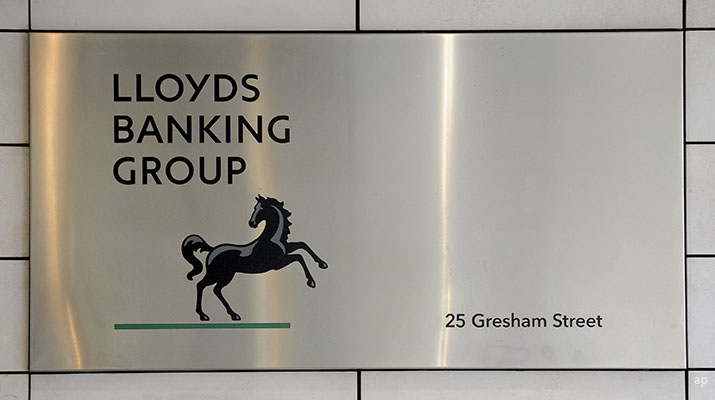
Lloyds has raised its dividend in its latest annual results but it’s been a turbulent reporting season for the UK banks, with significant job losses announced at HSBC (HSBA) and a change of identity for Royal Bank of Scotland (RBS).
Pre-tax profits at Lloyds Banking Group (LLOY) were down 26% as the group took a £2.4 billion hit from payment protection insurance (PPI) payouts. But the full-year dividend of 3.37p is 5% higher than the previous financial year with the yield on the bank's shares now approaching 6%. The firm has now increased dividend payouts every year since reinstating income payments in 2014, having taken a long hiatus after the financial crisis.
Without an economic moat, Lloyds doesn’t make it on to our list of the FTSE’s highest dividend yields. But Morningstar analysts still think it’s the pick of the UK banks for income. Analyst Johann Scholtz thinks the ordinary dividend is safe (that is, unlikely to be cut) and the bank could also potentially pay a special dividend in 2020, as well as resuming its share buyback programme, which should further support the share price. Shoring up the share price would stop the yield on the shares sky-rocketing, which should stop investors from worrying about a potential cut.
Because of its domestic focus, Lloyds has been one of those “unloved” UK stocks that value fund managers expect to recover once the political uncertainty of the past few years starts to clear. The shares bounced from 50p to 60p ahead of the General Election but are still yet to reach their pre-EU referedum levels of 2016.
The deadline for claiming for PPI passed in August 2019 and providers saw a rush of last-minute claims. Lloyds has been the most exposed of the big banks to the PPI scandal and claims have dragged on its profits for many years; it now says the £2.4 billion provision for PPI claims it set aside in 2019 should be the last. Joe Healey, investment research analyst at The Share Centre, thinks the 2020 outlook is brighter now that PPI is behind Lloyds, and the domestic economy picks up after the Election.
HSBC Cuts Jobs, RBS Changes Name
It’s been a dramatic period for Lloyds’ rivals: fellow bailed-out bank Royal Bank of Scotland is rebranding as “NatWest” in an attempt to put the financial crisis behind it and HSBC said it would cut 15% of its global workforce - an incredible 35,000 jobs.
Shares in HSBC, which is still searching for a chief executive, fell around 5% on the jobs announcement to around 561p, pushing the yield on its shares above 7%. Still, the bank held its dividend for the full year at 50 US cents, the same as in 2018. Internal upheaval and the effect of the coronavirus on its key Asian markets are expected to hit profits this year.
Morningstar analyst Michael Wu has cut the bank’s “fair value” estimate to 700p from 800p following the results, suggesting that the bank’s shares remain undervalued at current levels. Wu expects the shares to remain below 700p in the short term as the bank takes time to restructure.
Royal Bank of Scotland, meanwhile, announced a second special dividend of 5p alongside its full-year results - that's on top of the 12p paid in September 2019. It takes its total payout for 2019 to 22p, compared with 2018’s 13p, a rise of nearly 70%. Still, the UK Government owns the majority of the shares, which have fallen 33% since the start of 2018 to 200p. Including special dividends, RBS’s yield is now more than 10%, which usually sets investors’ alarm bells ringing. But Morningstar analysts think the RBS dividend is safe, especially as it’s backed by the Government. Niklas Klammer maintains his 272p fair value estimate for RBS shares after last week’s results.




























